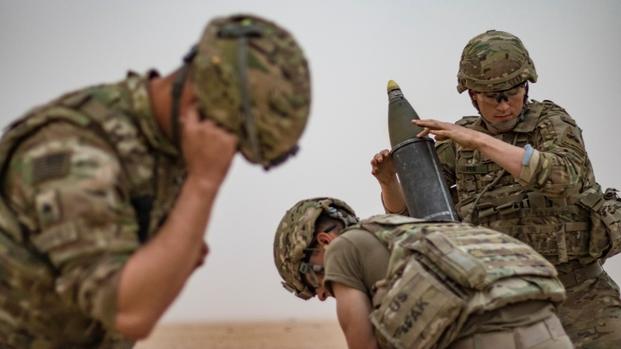The U.S. military on Tuesday began soliciting bids from companies interested in developing biodegradable ammunition carrying projectiles -- as well as seeds that eventually sprout into plants.
Specifically, the objective of the Small Business Research Innovation program is to "develop biodegradable training ammunition loaded with specialized seeds to grow environmentally beneficial plants that eliminate ammunition debris and contaminants," according to an announcement posted on the Small Business Association website.
The news was previously reported on Fox News and PCMag.com.
The type of projectiles are not rifle rounds, but rather larger munitions including low-velocity 40mm grenades; 60mm, 81mm, and 120mm mortars; shoulder launched munitions; 120mm tank rounds; and 155mm artillery rounds, the notice states.
"The projectiles, and in some circumstances the cartridge cases and sabot petals, are either left on the ground surface or several feet underground at the proving ground or tactical range," it states. "Components of current training rounds require hundreds of years or more to biodegrade."
The proposed solution, then, is to develop a biodegradable material to replace the current training rounds -- and the U.S. Army Corps of Engineers has already conducted research that shows bioengineered seeds can be embedded into biodegradable composites, according to the announcement.
This effort "will make use of seeds to grow environmentally friendly plants that remove soil contaminants and consume the biodegradable components developed under this project," it states. "Animals should be able to consume the plants without any ill effects."
The notice didn't specify what types of plants the rounds will shoot into the ground.
In addition to the Army, other participating organizations include the Navy, Air Force, U.S. Special Operations Command (USSOCOM), Defense Advanced Research Projects Agency (DARPA), Chemical and Biological Defense, Defense Health Agency and Defense Logistics Agency, according to a separate document on a Defense Department website.









